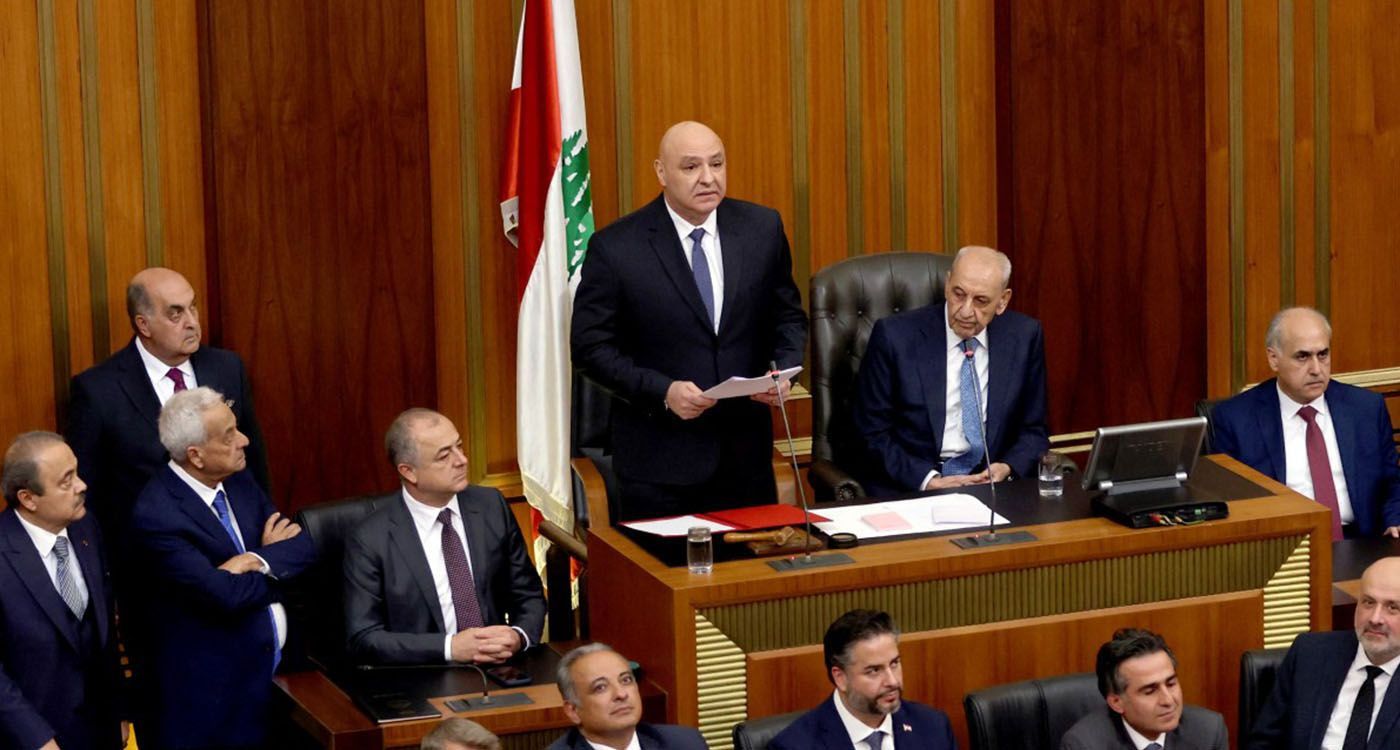
The challenging journey has officially begun. At the starting line, President Joseph Aoun has clearly outlined the key directions. In his inaugural address to the National Assembly, ambassadors and members of the diplomatic corps, the head of state presented a roadmap that breaks with conventional approaches and entrenched clichés.
“My aim is not to engage in political maneuvering, but to build a state.” With these words, the new occupant of Baabda has set a resolute tone. From the very beginning, he has displayed a firm determination — one that is necessary, of course, yet not sufficient. He is not the only player in this bold, multidimensional national recovery process.
To successfully carry out his critical mission, he must be unambiguously and steadfastly supported by the sovereignist parties, groups and personalities — a backing that is already in place. But he must also secure the support of all other MPs, political currents and centers of influence who genuinely care about the public good, oppose Hezbollah’s anti-Lebanese agenda and possess a sense of national responsibility. These individuals must acknowledge that the Lebanese people can no longer endure six more years of reckless public fund mismanagement, unchecked profiteering and the dismantling of the state and the country’s vital sectors by a faction of political “leaders” who act as unscrupulous opportunists, or whose sole concern is to serve a regional power with delusional hegemonic ambitions, disregarding the shifting dynamics in the region.
The unwavering support of Arab countries, particularly those in the Gulf, as well as that of the international community, mainly the United States and the European Union, is equally crucial. Yet, while essential, this support alone is not sufficient. Ultimately, it falls to Lebanon’s political leaders and influential factions to take every possible step to ensure that President Joseph Aoun can implement the principles he laid out in his inaugural speech and swiftly confront the staunch opponents of the national recovery effort.
The first major obstacle these opponents are likely to create will arise during the parliamentary consultations for the designation of a prime minister. They will seek to impose a candidate who could sabotage the new mandate from the outset, thus rendering the roadmap outlined by General Joseph Aoun on January 9th meaningless.
In this context, a parliamentary resurgence has become essential, at least among those MPs who still possess a sense of national awareness (and political maturity!). Given the shifting regional dynamics and, more importantly, the advanced state of decay into which Lebanon has been deliberately led, the choice of prime minister can no longer be governed by the logic of “we must appease Hezbollah,” “we must avoid confrontation” or “we must grant them the third presidency to compensate for their failure in choosing the president.”
Regardless of who is chosen as prime minister, Lebanon can no longer afford the appointment of someone who would willingly perpetuate the political continuity of half a century of occupation, tutelage, regional diktat, profiteering, clientelism, the squandering and misuse of public funds… In short, the absence of effective governance and national dignity.
The selection of the head of the new government may not be ideal, given the current makeup of Parliament. However, it is essential that the appointed prime minister, regardless of their past, demonstrates the political courage to move beyond the Iranian era and fully align with the president’s vision. The two must work together to translate the principles outlined in the inaugural speech into tangible actions. The prime minister should also be keenly aware of the urgent need to anchor Lebanon in the new regional order — a necessary step for the Lebanese people to finally experience an era of stability, peace, civil tranquility and prosperity.
Ultimately, the key factor will be the composition and profile of the new government, as its success will determine the effectiveness of the new mandate, at least until the next legislative elections in May 2026. Any decision in the appointment of a prime minister aimed at preserving the continuity of five decades of national decay — whether to “avoid antagonizing Hezbollah” or, even worse, “to deny legitimacy to the sovereignist opposition” — would amount to nothing short of a national betrayal, an abandonment of the Lebanese people in their moment of peril.




Comments